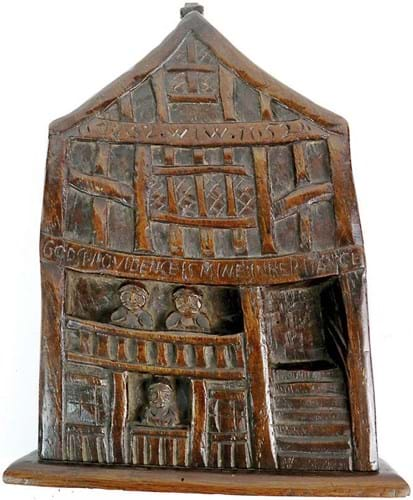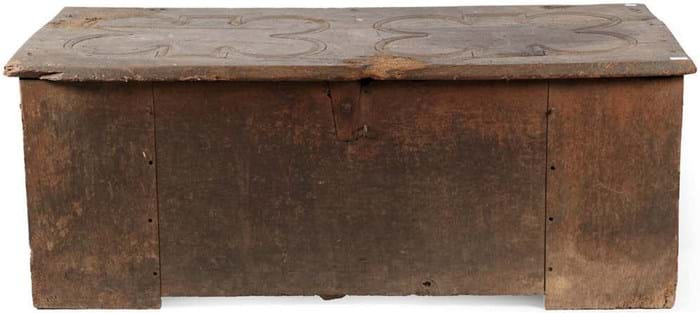The 11in (27cm) high carving depicts the facade of God’s Providence House and is inscribed Gods Providence Is Mine Inheritance. It carries the initials WIW flanked by the dates 1652.
The building, number 9 Watergate Street, Chester, took its name after the residents of the original property escaped the devastating bout of Black Death that swept through Chester in 1647-48.
The medieval house that was leapfrogged by the plague was rebuilt in 1652 and extensively remodelled as part of the ‘black and white revival’ in 1862.
Jeremy Lamond of Halls in Shrewsbury said that the panel was brought in for sale by the granddaughter of Robert Beswick (1884-1973), a Staffordshire solicitor and collector related to the Beswick family of potters.
“I was aware of the story but I could not be sure if there was a direct link to the house until I saw the date 1652 – the year the house was rebuilt. Then I was sure it was the real thing,” said Lamond.
On July 17, multiple bidders competed well above the estimate of £800-1200. A 20% buyer’s premium was charged.
Early oak chest
An equally rare example of the English vernacular style emerged for sale at Tennants of Leyburn on July 13.
A 5ft 4in (1.64m) oak clamp-fronted chest, purchased by the vendor as 19th century, was identified as one of a small number of joined oak coffers surviving from the medieval period. Similar chests pictured in Victor Chinnery’s Oak Furniture, The British Tradition are dated to the 13th-15th century.
An appealing detail is the simple stylised four-leaf clover motifs carved to the hinged lid. Offered with a £500-800 estimate, it sold at £22,000 (plus 20% buyer’s premium).
















